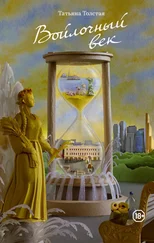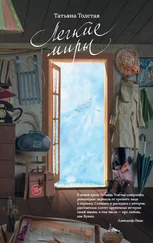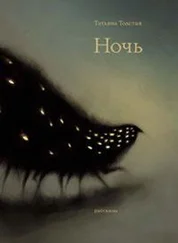In the middle of the front lawn she had planted a Japanese maple, the kind with little red, filigreed leaves. That was a great thing she had done! I often thought about her, imagining her for some reason in a sky-blue dress: here she is, walking out of our little house, squinting at the sun, walking over to the white roses, to the purple irises wildly gynecological in their construction; touching red leaves with her dark-skinned hand and looking around to see that, behold, it was all very good. I also found out that she had planted daffodils, but over the years they had migrated south, and I would find them on the border of my neighbor’s property, in thickets and vines, in places where my legs couldn’t go but my hands could still reach. Of course, I dug them out and moved them back to the house—that was where she’d wanted them from the very beginning. And I had an intimation of her walking by, casting a glance.
I could see traces of her presence everywhere on the property—and the property was huge. I soon found out what she had planted on the south side and what on the east, what she’d hidden under the pine tree—such as those lilies of the valley—and what she’d wanted to make visible from the front stoop, our flimsy little three-step porch. When lush American summer came, I finally saw her vision in its totality: an immense wall of bushes rose up at the edge of the property and completely shielded us—from the street, from the cars, from the fumes, sounds, and prying eyes. We couldn’t see anyone and no one could see us. If you didn’t know that our house was just there, behind that green wall, you’d have never guessed it. After sunset it disappeared in the crepuscular light, so that I myself could easily miss it from the street.
In the hallway, from the ceiling, there hung a rope. I tugged at it, and a squeaky folding staircase came down. It led to the attic, of course. There, boxes filled with junk from the 1960s were drying out and falling apart—blouses and aprons, the kind one wouldn’t have wanted to wear even then but couldn’t bring oneself to throw out. Nothing interesting. A whole mess of postcards—Christmas, Easter—also boring and unremarkable: “Merry Christmas, dear Bill and Nora.” So her name was Nora. Funny, I had imagined her as a Sally.
Once again she walked by, undetected, running her hand over the droopy branches of the Liquidambar—a beautiful evening-hued tree, full of sweet sap. But Bill didn’t walk by—he never walked in the garden. He stood, camouflaged by the wall, semi-transparent, eyes glistening in the dark.
According to custom, our neighbors came bearing pie. We already knew that this is what happens when you first move in but weren’t sure if we were supposed to reciprocate. These neighbors had a farm.
“Do you eat meat?” they asked.
“Yes, of course,” we answered naively.
“Then come by and pick out a baby lamb. We will slaughter it for you and you’ll save some money.”
We were city folk, and this offer somewhat paralyzed us. Not that we were considering becoming vegetarians, but the idea of coming to a farm, pointing to that one—sweet, curly, innocent—and… what? “Kill it, I want it”?
I reckon they ascribed our sudden stupor to that general idiocy of foreigners.
“Then come by for blueberries, you can pick all you want. We have so many this year, don’t know what to do with them.”
Blueberries I could agree to. I grabbed a basket and off I went, taking the long way through the fields. The distance between our houses was no more than five hundred feet, but those feet were densely forested. The thicket between my neighbors and me was absolutely impassable. Little Red Riding Hood and the Wolf, entering from opposite sides, would never have found each other.
I looked around for the blueberries, but couldn’t see any. The missus walked me over to some sort of aviary—in the Moscow zoo, such cages are used to house sullen feathered creatures with complex Latin names.
“We have to keep the berries under a mesh or the birds will eat them,” she complained.
I walked into the aviary. High above my head, on the upper branches of the bushes, there were, indeed, berries, but not the cute little blueberries we Russians crouch and kneel to pick. These were industrial-sized, overgrown, American monster-berries. And to pick them, one had to get on tippy toes and reach high overhead. The sun was blinding. The birds desperately stalked the mesh roof but couldn’t reach anything. I didn’t last long. After picking a small boxful, I stopped and decided to head home. Watching me go, the neighbor’s wife concluded that I was a moron, but politely concealed it with a fake smile. Thank you, Lord. I am free! Under a canopy there was a little black boy with a frightened and unhappy face. The husband was busy instructing the child.
“We adopted him.” The neighbor’s wife pointed her finger in the direction of the little one. “Say hi!”
The little boy hurriedly got up and gave a nod.
“He had a bad life before, but he’s happy here,” said the husband, and then turned back to finish his lecture: “First you work, then you eat.”
I took the long way home, through the fields. You could say that nothing bad had transpired, but as often happens with introverts, I felt as if my soul had been trampled on. Was it the birds…? The path veered off into the forest, where houses stand empty, propped up by trees that pierce them like spears.
“Nora,” I said to an empty house in the empty forest. “Nora, he had a bad life before them, but he’s happy here.”
But she was looking far into the distance, and was almost no longer here.
§
I was working at a small college way up north. Two days a week—Mondays and Wednesdays—I was to teach creative writing. We’d tell the students right away that it can’t be taught, but they’d only smirk, thinking that the grown-ups were lying: “Somebody must have taught them !”
Few of them truly applied themselves, but that wasn’t what irritated me. Much worse was that they didn’t really know how to read and couldn’t be bothered to learn. Didn’t care about what was actually written down on the page.
I’d assign them a five-page story to read. Hemingway. Or maybe Salinger. “So, Steven, can you tell me what this story is about?”
“I dunno. I didn’t like it.”
“Thank you for sharing—your opinion is very valuable to us. Can you tell us specifically what you didn’t like?”
“I didn’t like that the guy was cheating on his wife. That’s just wrong. I don’t like to read about such things.”
“Tell me, Steven, do people sometimes cheat on each other?”
“Yes.”
“So why not write a story about that?”
“Cheating is wrong and it doesn’t teach us anything.”
“So you’re saying that literature must teach us? An interesting and debatable point of view. Can you please elaborate?”
I didn’t give two shits about what Steven would say. What I gave a shit about was not letting this smart-ass little punk—who’d spent the entire night before smoking weed (and still reeked of it) and who’d just cut me off in his Porsche to take my parking spot—think he’d hoodwinked me about even having read the story. Must have just asked his girlfriend outside: What’s this story about? And she said: Some dude steps out on his girl. Now here he is, answers at the ready. Don’t piss on my leg and tell me it’s raining, I’ll corner you and eat your brains for breakfast.
But here is the conundrum: if you simply and guilelessly expose a student as a liar and fail him for being unprepared, he’ll avenge himself at the end of the semester. Every single one of them gets a teacher evaluation form from the dean’s office twice a year. They sit down and, diligently bending their wrists unaccustomed to writing, fill out said forms with block letters and slanderous accusations. “Professor didn’t hold my interest.” “Didn’t create an entertaining atmosphere for me.” “What’s with those crazy ties?” “Gave me Cs and Ds but didn’t explain why. Overall, I was disappointed.”
Читать дальше






